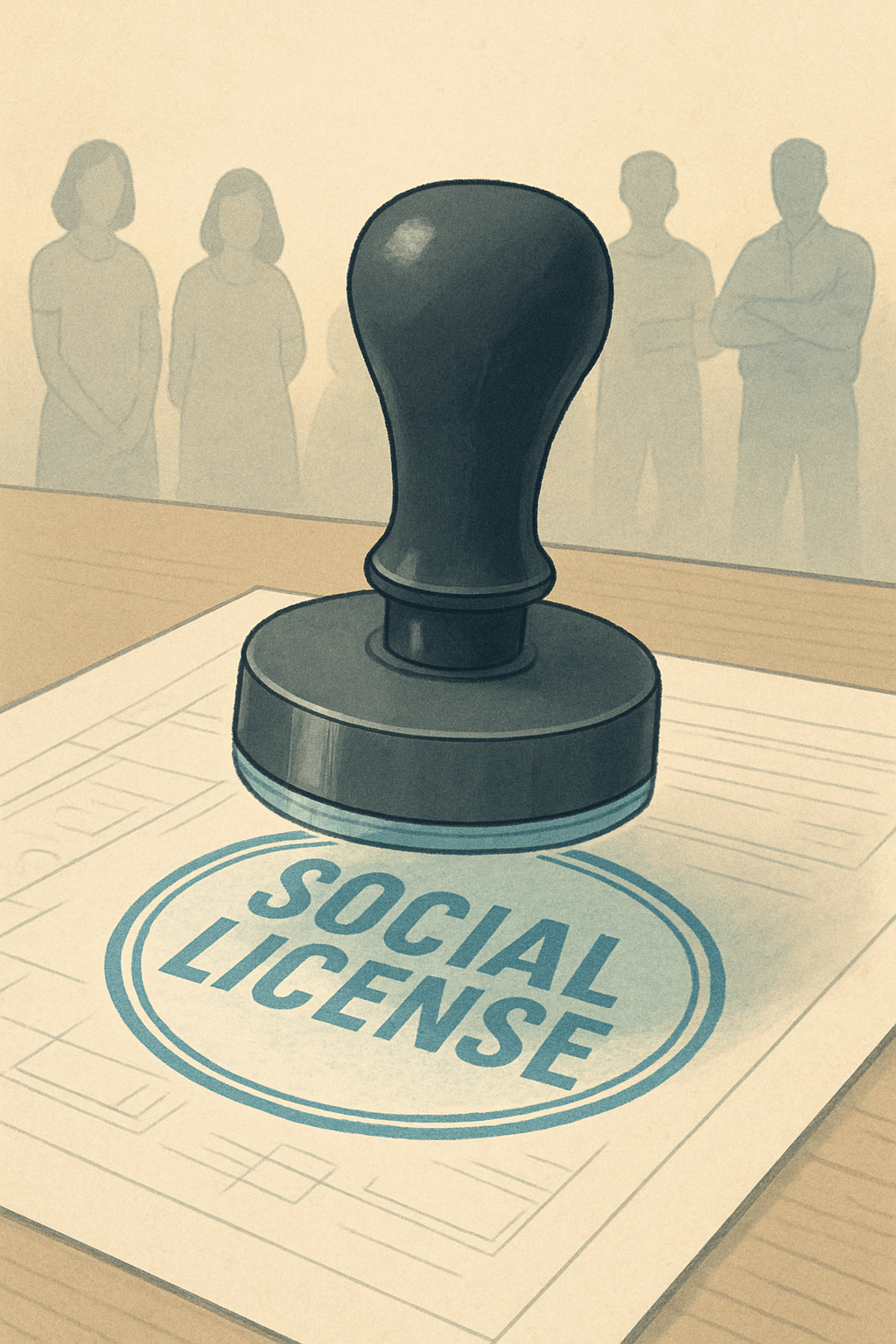
We see it – a proposal for a new development sparks heated neighborhood debate, a tech company's expansion plans draw community scrutiny, or maybe just that general feeling bubbles up: Austin expects businesses and projects to be more than just... present. It expects them to be good neighbors.
Getting the official green light from City Hall, the necessary permits, the legal paperwork – that’s all essential. But increasingly, there’s another, less tangible form of approval that’s just as critical: the "Social License to Operate" (SLO).
So, What Exactly is a “Social License”?
Think of it like this: a legal permit gives you the right to operate, but a social license gives you the ongoing acceptance and approval from the community and stakeholders around you – the neighbors, employees, customers, and the public. It’s unwritten, it’s earned, and it’s built fundamentally on trust. You can technically operate without it (if you have your permits), but doing so gets much, much harder. It’s like having the keys to your house (legal license) but finding your neighbors constantly wary or upset because they feel you aren’t respecting the shared neighborhood (lacking social license).
Why SLO is Especially Crucial in This Austin, Right Now
- Ignoring the Vibe is Risky: Assuming a legal permit is enough can lead to unexpected headwinds – organized opposition delaying projects, difficulty attracting local talent wary of a poor community reputation, or even boycotts impacting business.
- Visibility is High: Social media and local online forums mean community sentiment can mobilize fast. Reputations, once damaged, can be hard to repair.
- “Good Neighbor” Status Matters: Austin often prides itself on a certain community spirit. Businesses perceived as extractive, dismissive, or tone-deaf to local concerns struggle to gain genuine acceptance, even if they bring jobs or tax revenue.
Earning Your Welcome Mat – It’s Not Automatic
Social license isn’t something you apply for; it’s something you earn through continuous, proactive effort. It’s about building relationships and demonstrating respect. Key ingredients often include:
- Genuine Engagement: Talking with the community early and often, not just at them. Actively listen to concerns, answer questions honestly, and be willing to adapt plans based on feedback.
- Transparency: Be open about what you're doing, why you're doing it, what the impacts (positive and negative) might be, and how you plan to mitigate concerns. No backroom deals.
- Respecting Local Context: Understand what makes a particular Austin neighborhood unique – its history, its culture, its environmental sensitivities. Show you've done your homework.
- Demonstrable Local Benefits: How does your project or business make things better for the immediate community? Think local hiring, partnerships with local suppliers, investments in parks or infrastructure, environmental stewardship beyond the minimum requirements.
- Responsiveness & Accountability: Acknowledge when things go wrong, address issues fairly, and follow through on commitments. Building trust takes time and consistency.
Losing SLO: Easier Than You Think
Just as it's earned, social license can be lost. Common pitfalls include ignoring community input, lack of transparency that breeds suspicion, significant negative impacts (like unexpected traffic surges or environmental damage), breaking promises, or displaying an arrogant “we know best” attitude.
More Than PR – It's Smart Strategy
Thinking about your social license shouldn't be a task for the PR department after a crisis hits. It's a core part of strategic planning and risk management, especially in a complex, engaged city like Austin. It requires weaving community considerations into your business model from the start. Proactively building SLO often aligns perfectly with building a robust "Trust Architecture" for your operations and pursuing "Blended Value" – demonstrating that your success contributes positively to the community around you.
What's Your Take?
For businesses and developers in Austin: Are you actively thinking about and tending to your social license? How do you measure it? How are you ensuring you're truly earning that community trust every day?
For Austin residents: What actions make you feel confident in granting your approval – that implicit social license – to a new project or business in your neighborhood? What are the red flags?
In a city that rightly cares deeply about its future, ensuring you have that social license isn't just about being nice; it's fundamental to building something lasting and successful.